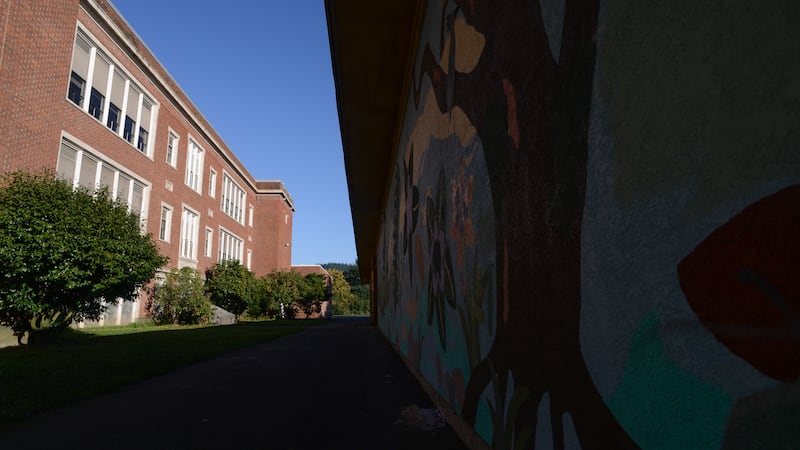We're getting the lead out.
Portland voters have signed off on the largest school bond in state history. Early returns tonight show voters overwhelming approving a $790 million construction bond for replacing or renovating four school buildings and providing health and safety fixes across the district.
With 21 percent of registered voters reporting—in an election where the total turnout is unlikely to top 30 percent of registered voters, the measure has a commanding margin. It is passing 61 percent to 39 percent.
"I'm ecstatic," said Brandi Jordan, a field organizer for the "yes" campaign. "The time and energy of countless volunteers has paid off and this really shows the community's commitment to public education."
Lincoln, Madison and Benson high schools as well as Kellogg Middle School will be overhauled with the bond money. The remainder of the money—$150 million—will go toward making sure drinking fountains across the district are free of lead contamination, and removing or covering lead paint, asbestos and other hazards.
The big question in front of voters was whether to punish Portland Public Schools and its nearly 50,000 students for repeated missteps by the board and central administration; or to acknowledge that management problems pale in comparison to the need to replace and refurbish the district's inventory of 90 buildings, which on average are 77 years old and plagued by hazards.
Tonight's vote came after a tumultuous campaign season and a chaotic year for the school district. Voters were asked to put aside concerns about ongoing problems with the management of the district in favor of concerns about the safety of school buildings.
Last spring, tests revealed elevated lead levels in drinking water at two schools, but the district failed to disclose them for nearly two months. That wasn't the biggest cover-up: The district had failed for at least four years to disclose similar water results across the district.
In July, longtime superintendent Carole Smith resigned in the wake of that scandal.
The district initially hoped to place its mammoth construction bond on last November's ballot, to take advantage of a large general election turnout, but the board retreated from those plans in the wake of the lead scandal.
Even with that delay and six months to prepare for the May ballot, the bond campaign got going late.
Earlier this month, the board abandoned their decision to appoint Donyall Dickey the new superintendent after the board receiving the results of a full background check. They weren't forthcoming about what problems exactly were identified.
With just over a week to go before election day, the district also saw its human resources director resign abruptly and a Multnomah County jury award two employees $1 million in a discrimination lawsuit.
The school board welcomes three new members after today's election and will now oversee the new bond, as well as the search for a new superintendent.
In the most hotly contested race, Rita Moore, a longtime parent activist, and Jamila Singleton Munson, a longtime staffer at Teach for America and Grant High School alum, faced off in Zone 5. Moore has a big lead—57 percent to 41 percent—with 21 percent of voters reporting.
In Zone 6, Julia Brim-Edwards, a Nike executive who previously served on the school board a decade ago, was handily elected, with 65 percent of the vote.
In Zone 4, Scott Bailey, a longtime parent volunteer, faced Virginia La Forte, a parent activist who forced PPS to address lead paint hazards. Bailey has 60 percent of the vote in early returns in a three-candidate race, while La Forte has 26 percent.
City voters also approved two charter changes: a measure to make the auditor's office more independent as well as a technical fix to make it easier to collecting lodging taxes from the short-term rental company VRBO as the city already does from the company's competitors. Neither faced organized opposition.
The auditor's charter change was passing 84 percent to 15 percent, according to early returns. The lodging tax change was leading 58 percent to 41 percent.
